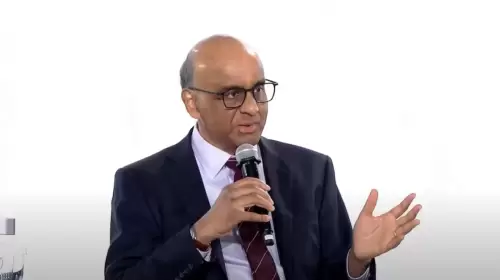 |
|
 |
|
 |
|
 |
|
 |
|
 |
|
 |
|
 |
|
 |
|
 |
|
 |
|
 |
|
 |
|
 |
|
 |
|
Cryptocurrency News Articles
Quantum-Resistant Crypto: Bitcoin, Ethereum, and the Race Against Q-Day
Jul 30, 2025 at 07:59 pm
Explore the urgent need for quantum-resistant solutions in cryptocurrency, focusing on Bitcoin and Ethereum, as quantum computing threats loom closer.

Quantum-Resistant Crypto: Bitcoin, Ethereum, and the Race Against Q-Day
The crypto world is buzzing about quantum computing and its potential to crack today's encryption. Bitcoin and Ethereum, the big dogs of the crypto world, are squarely in the crosshairs. The big question is: how do we make these digital assets quantum-resistant before it's too late?
The Quantum Threat is Real
As quantum computing continues its rapid advance, the risk to traditional cryptographic systems becomes increasingly clear. Cryptocurrencies like Bitcoin (BTC), Ethereum (ETH), and Solana (SOL), which rely on exposed public keys during transactions, are susceptible to quantum-based attacks. The term 'Q-Day' is now used to mark the moment quantum computers are capable of breaking current encryption. The practice known as 'harvest now, decrypt later' elevates the urgency of adopting quantum-resilient solutions.
01 Communique Steps Up with Quantum-Safe Solutions
Companies are starting to take this threat seriously. 01 Communique Laboratory Inc. (soon to be 01 Quantum Inc.) is leading the charge. They've formed a strategic alliance with a crypto foundation to develop quantum-safe cryptocurrencies. This partnership aims to protect digital assets from quantum computing threats. The company plans to integrate its IronCAP™ technology and patent-pending solutions to create quantum-resistant tokens and infrastructure that run on existing blockchains.
Andrew Cheung, CEO of 01 Communique, emphasizes the importance of protecting the cryptocurrency market from Q-Day. The company's mission is to secure digital infrastructure in advance of emerging risks, and this collaboration reinforces that commitment within blockchain ecosystems such as Bitcoin, Ethereum, and Solana.
Naoris Protocol: A Quantum-Resistant Blockchain
Naoris Protocol is another player in this space. They're developing a quantum-resistant blockchain and cybersecurity mesh architecture. Their $NAORIS token powers a machine-driven trust economy, enabling real-time, quantum-resistant security validations across both Web3 and traditional Web2 infrastructures. The company raised $3 million in a strategic funding round led by Mason Labs, with participation from Frekaz Group, Level One Robotics and Tradecraft Capital.
Naoris CEO and Founder David Carvalho believes that blockchains cannot retrofit their way to post-quantum security; it must be built into the infrastructure from the ground up. Naoris’ architecture combines Post-Quantum Cryptography, Decentralized Proof-of-Security (dPoSec) consensus, and Swarm AI to secure blockchain transactions and web infrastructure against quantum computing risks.
What This Means for Bitcoin and Ethereum
The race is on to future-proof Bitcoin and Ethereum. The SEC approved in-kind ETFs for Bitcoin and Ethereum, as well as an expedited approval process for future altcoin products. Additionally, the Commission raised the position limit on IBIT options trading tenfold, potentially enabling “an explosion of option-based Bitcoin ETFs.” These developments signal a growing acceptance of crypto within traditional finance, but also underscore the need for enhanced security measures.
The Bigger Picture
The increasing interest in quantum-resistant solutions highlights a critical shift in the crypto world. As major firms adopt Bitcoin as a core part of their treasury strategy, as evidenced by Sequans Communications' significant BTC holdings, the demand for robust security measures grows. This trend, combined with the rise in corporate Bitcoin holders, signals a broader pattern of institutional demand for Bitcoin.
Final Thoughts
The quantum threat is real, but so is the innovation happening to combat it. Companies like 01 Communique and Naoris Protocol are stepping up to the plate, developing quantum-safe solutions. As quantum computing continues to advance, it's crucial that the crypto industry stays one step ahead, ensuring that Bitcoin, Ethereum, and other digital assets remain secure for the future. It's a wild ride, but hey, that's crypto for ya!
Disclaimer:info@kdj.com
The information provided is not trading advice. kdj.com does not assume any responsibility for any investments made based on the information provided in this article. Cryptocurrencies are highly volatile and it is highly recommended that you invest with caution after thorough research!
If you believe that the content used on this website infringes your copyright, please contact us immediately (info@kdj.com) and we will delete it promptly.






























































